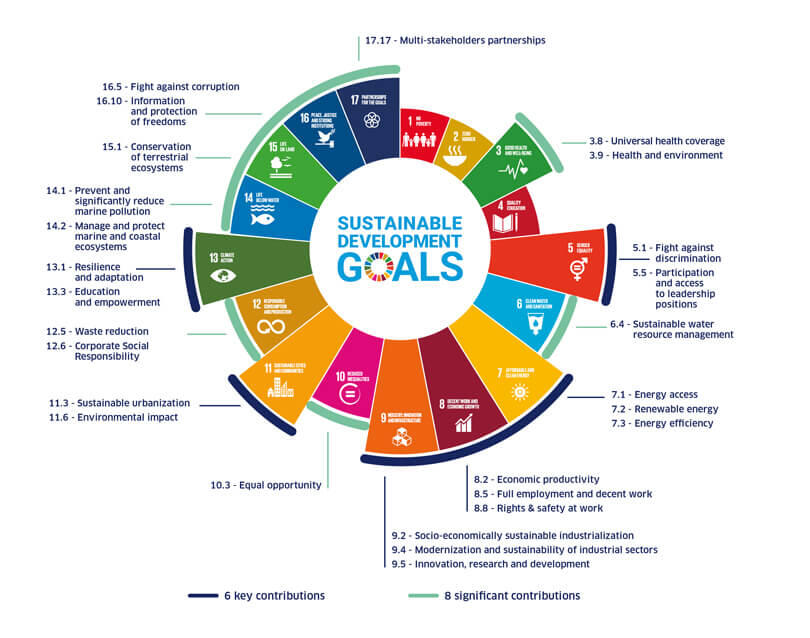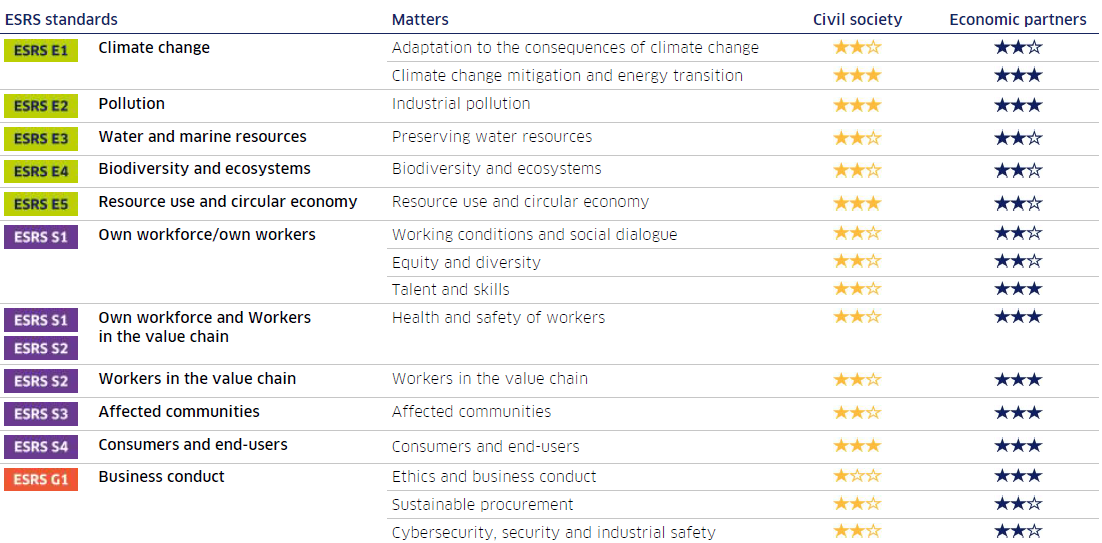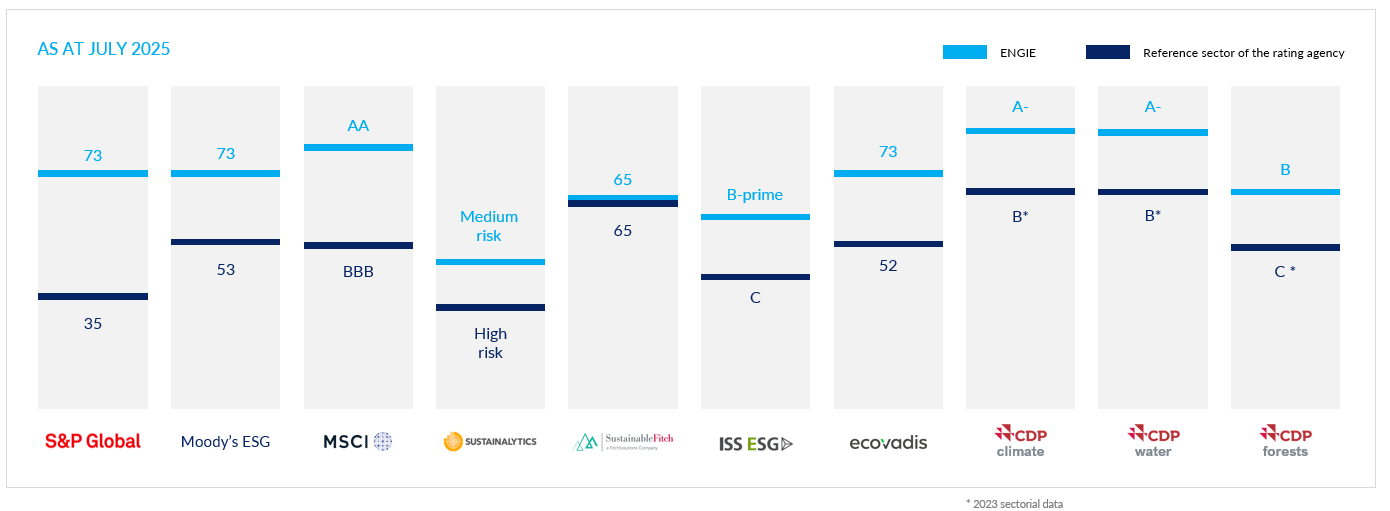
Guided by its purpose to “act to accelerate the transition to a carbon-neutral economy”, the Group is a major player in the energy transition. ENGIE structures its strategy around sustainability-oriented policies and objectives. Through its ESG commitments and the monitoring of its ESG performance, the Group affirms its desire to create long-term value, while meeting the expectations of its stakeholders and regulatory requirements.
Table of contents
Group strategy and ESG policies
Group strategy and ESG
ENGIE, a pioneer in the energy transition, places sustainability at the heart of its corporate strategy. The Group's ambition is to become the best utility in this field, for a low-carbon future.
In 2021, ENGIE adopted an ambitious roadmap to reach Net Zero Carbon by 2045. To achieve this, the Group deploys its climate strategy to meet its decarbonization targets.
The Annual General Meeting of April 24, 2025 adopted the update of ENGIE's climate strategy, marking the introduction of new milestones for 2035 and 2040.
See the Group's climate commitments
ENGIE’s ESG policies
Since the publication of its first ESG policy in 2014, ENGIE regularly reviews its policies related to Environmental, Social, and Governance topics.
These policies are cascaded at the level of the GBUs (Global Business Units). Their implementation is ensured by the Executive Committee under the supervision of the Board of Directors, whose work is prepared by the Ethics, Environment and Sustainable Development Committee (EESDC).
ENGIE’s 2030 ESG objectives
The 2030 ESG objectives materialize the commitments and support the Group's ESG policy. These goals relate to the climate, nature and people.
See details of ENGIE's 2030 objectives
ENGIE’s double materiality matrix
Since January 1, 2024, ENGIE has been applying the 2023 European CSRD (Corporate Sustainability Reporting Directive), which aims to harmonize non-financial reporting. This new regulatory framework extends to the ENGIE parent company as well as its subsidiaries worldwide (Europe and outside Europe).
The double materiality analysis makes it possible to identify the ESG topics on which ENGIE has a significant socio-environmental impact (positive or negative) and those with a major effect (risks or opportunities) on the Group's financial performance.
The analysis led to the selection of 16 material ESG issues, listed below and in correspondence with the CSRD's ESRS (European Sustainability Reporting Standards) thematic standards.

Find out more about ENGIE’s double materiality matrix
Contribution to the United Nations Sustainable Development Goals (SDGs)
ENGIE has examined its contribution to the UN Agenda 2030, the Sustainable Development Goals and their respective targets.
In order to identify the SDGs to which ENGIE makes a key contribution, the Group has developed a strategy and studied the contribution of each of the priority issues of its materiality matrix to the various SDGs and their targets.
The Group contributes to the SDGs at different levels:
- The Group's contribution to an SDG is considered as “key” when at least one fundamental, decisive ormajor issue of the Group contributes to the SDG and its associated targets and when this contribution is monitored thanks to an indicator and a Group objective.
- The Group's contribution to an SDG is considered as “significant” when at least one of the Group's material issues contributes to the SDG and this contribution is driven by a Group commitment.

